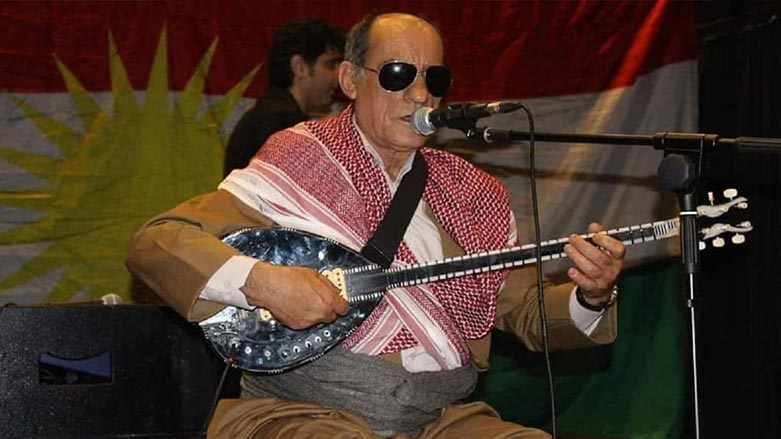Beloved Syrian Kurdish singer Said Gabari hospitalized in Erbil
The famous Syrian Kurdish folk musician and composer Said Gabari has been admitted to the intensive care unit at a hospital in the Kurdistan Region’s capital of Erbil for lung cancer treatment.

ERBIL (Kurdistan 24) – The famous Syrian Kurdish folk musician and composer Said Gabari has been admitted to the intensive care unit at a hospital in the Kurdistan Region’s capital of Erbil for lung cancer treatment.
Gabari arrived in the Kurdistan region in mid-March from Germany, after which he was treated in quarantined for two weeks as required by government anti-coronavirus measures.
He was reportedly in good health during the quarantine period, but roughly 10 days ago, his conditioned worsened, leading to his present hospitalization.
“In general, he is in stable situation; he’s been put on a ventilator. We will do all we can to have him treated,” Dr. Welat Ibrahim Akreyi told Kurdistan 24, on Thursday, denying rumours that he passed away.
“Secondly, Said Gabari’s family has requested to transfer him to Germany, since he is German citizen from Cologne city. Here, we have all the required equipment to continue with his medical care,” he added, “but that is what his family has asked for.”
The doctor stated that after the “family’s request to the governor of Erbil, the Kurdistan Prime Minister, Mr. Masrour Barzani, has ordered for an emergency plane to be ready to fly Said Gabari to Germany. All expenses will be covered by the Kurdistan government.”
“We are expecting that the flight will take off either tonight or tomorrow morning, pending some logistical preparations.”
He also sought to dispel rumors of Gabari’s death, saying, “It has been more than an hour that some have said the great Kurdish singer Said Gabari has passed away; but that is not true.”
Said Gabari’s nephew told Kurdistan 24 that he doesn’t know what to say to those that spread fake news about his uncle’s death. “They have harmed us and his family in Europe. We have received many messages and we have replied to many of them on Facebook and WhatsApp, but some do not believe us.
“I do not understand why they are doing this. They must have mercy because it is not right to spread false news about someone’s life. We have not left our uncle alone, we are checking on him every five minutes,” he added.
Gabari was born in the village of Xirbê Kejê in the Hasakah province on April 13, 1956.
The artist wore glasses since losing his sight a few years after his birth.
He is known for his patriotic songs and his participation in an untold number of Kurdish concerts and events.
In a 2015 interview with the artist, The Christian Science Monitor called him a “Peshmerga bard” and reported that he had spent years behind bars in infamous jails, such as one in Diyarbakir, Turkey, Iraq’s Abu Ghraib, Iran’s Evin, and others in Syria.
In Turkey, the article said, he was given electric shocks 111 times during his detention in 1965. During the three years he spent at Abu Ghraib in the 1980s, Gabari was part of a group of 400 inmates who were tortured after celebrating Newroz inside the facility.
Gabari told the newspaper that his crime was giving voice to Kurdish dreams.
“They would say: If Peshmerga shoot bullets in the mountains no one hears them,” said Gabari, “but revolutionary songs grow their ranks.”
Editing by John J. Catherine
[CORRECTION: An earlier version of this report incorrectly stated that Gabari was born blind in the Syrian city of Hasakah. He was, in fact, born in the village of Xirbê Kejê in the Hasakah province on April 13, 1956. Furthermore, the artist wore glasses since losing his sight a few years after his birth.]
